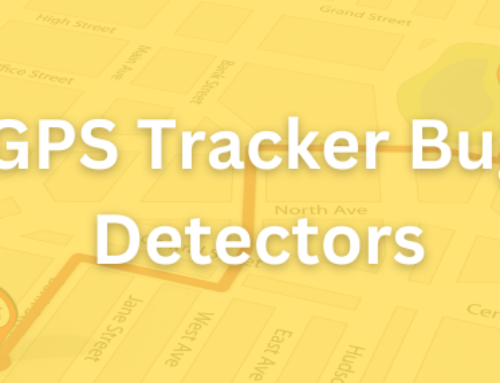When it comes to helicopter operations, efficiency and safety are paramount. With the advancements in technology, GPS trackers have emerged as a game-changer in enhancing helicopter operations. By providing real-time location data and a range of other valuable information, GPS trackers enable operators to efficiently track and manage their helicopter fleets.
With the ability to track helicopters in remote areas, GPS trackers offer improved safety by ensuring that operators are always aware of their aircraft’s whereabouts. This real-time data can also help in planning flights, optimizing routes, and making informed decisions during emergency situations.
Moreover, GPS trackers enable operators to monitor critical parameters such as speed, altitude, and fuel consumption. By analyzing this data, operators can optimize flight operations, reduce maintenance costs, and enhance overall efficiency.
Incorporating GPS trackers into helicopter operations also brings advantages in terms of logistics and asset management. Operators can easily locate helicopters, monitor maintenance schedules, and streamline operations, thus improving productivity and profitability.
To unlock the full potential of helicopter operations, operators need to embrace GPS trackers. These innovative devices offer a range of benefits, from enhancing safety and efficiency to optimizing fleet management. With GPS trackers, the skies become more accessible, enabling operators to take their helicopter operations to new heights.
Challenges in Helicopter Operations
Helicopter operations present unique challenges that require careful management. One of the main challenges is ensuring the safety of the aircraft and crew, especially in remote and challenging environments. Helicopters often operate in areas with limited infrastructure and communication, making it crucial for operators to have real-time information about their aircraft’s whereabouts.
Another challenge is optimizing flight operations to minimize costs and maximize efficiency. Helicopters consume a significant amount of fuel, and inefficient flight routes can result in increased expenses. Additionally, without proper monitoring, maintenance schedules can be overlooked, leading to potential safety risks and increased maintenance costs.
Importance of GPS Trackers in Helicopter Operations
GPS trackers have become an essential tool in helicopter operations due to their ability to provide real-time location data and other valuable information. These devices allow operators to track helicopters even in remote areas, enhancing safety by ensuring operators are always aware of their aircraft’s whereabouts.
With GPS trackers, operators can plan flights more effectively by analyzing real-time data. This information helps optimize routes, avoid congested airspace, and make informed decisions during emergencies. By having a comprehensive view of their fleet’s location and status, operators can reduce response times and enhance safety measures.
How GPS Trackers Enhance Safety in Helicopter Operations
GPS trackers play a crucial role in enhancing safety in helicopter operations. By providing real-time location data, operators can track their helicopters at all times, even in remote areas where traditional communication methods might be unreliable. This data allows operators to quickly identify any deviations from planned routes or unexpected landings, enabling swift response in case of emergencies.
In addition to real-time location data, GPS trackers also monitor critical parameters such as speed, altitude, and fuel consumption. This information allows operators to ensure that their helicopters are operating within safe limits, reducing the risk of accidents or mechanical failures. By continuously analyzing this data, operators can identify potential issues before they escalate, improving overall safety standards.
Benefits of Using GPS Trackers in Helicopter Operations
The use of GPS trackers in helicopter operations brings a wide range of benefits. Firstly, operators gain improved fleet management capabilities. They can easily locate helicopters, monitor maintenance schedules, and optimize operations. This streamlines processes reduces downtime, and increases overall productivity and profitability.
GPS trackers also enable operators to optimize flight operations. By analyzing data on flight paths, speed, and fuel consumption, operators can identify inefficiencies and make necessary adjustments. This helps reduce fuel costs, extend the lifespan of helicopter components, and minimize environmental impact.
Furthermore, GPS trackers provide valuable data for performance analysis and decision-making. Operators can track historical flight data, identify trends, and make data-driven decisions to improve operations. This includes optimizing flight routes, adjusting maintenance schedules, and implementing training programs for pilots based on data insights.
Types of GPS Trackers for Helicopters
There are various types of GPS trackers available for helicopters, each with its own set of features and capabilities. One common type is the portable GPS tracker, which is lightweight and can be easily installed or removed from helicopters. These trackers offer real-time tracking capabilities, allowing operators to monitor their fleet’s location and status remotely.
Another type is the hardwired GPS tracker, which is directly integrated into the helicopter’s electrical system. These trackers provide more comprehensive data, including information on engine diagnostics, maintenance alerts, and sensor readings. Hardwired trackers are typically more expensive but offer advanced features for operators who require detailed insights.
Features to Consider When Choosing a GPS Tracker for Helicopters
When selecting a GPS tracker for helicopters, operators should consider several key features. Firstly, the tracker should offer real-time tracking capabilities, providing accurate and up-to-date location data. This ensures operators are always aware of their fleet’s whereabouts, improving safety and response times.
Additionally, the tracker should have a robust battery life or be compatible with the helicopter’s electrical system. This ensures continuous tracking even during long flights or in challenging environments. The tracker should also have a durable and weather-resistant design to withstand the harsh conditions often encountered during helicopter operations.
Furthermore, operators should consider the data analysis capabilities of the GPS tracker. It should provide comprehensive reports on flight paths, speed, altitude, and other critical parameters. This data can be used to optimize operations, reduce costs, and enhance safety measures.
Case Studies of Successful Implementation of GPS Trackers in Helicopter Operations
Several helicopter operators have successfully implemented GPS trackers to enhance their operations. For example, a search and rescue organization utilized GPS trackers to track their helicopters during rescue missions. The real-time location data enabled them to coordinate efforts more effectively and reduce response times.
Another case study involves a helicopter tour company that integrated GPS trackers into its fleet. By tracking their helicopters’ locations and analyzing flight data, they were able to optimize routes, minimize fuel consumption, and provide a safer and more enjoyable experience for their customers.
Training and Certification for Helicopter Operators Using GPS Trackers
To ensure the effective use of GPS trackers in helicopter operations, operators should provide training and certification for their personnel. This includes pilots, maintenance technicians, and ground staff who are involved in the tracking and analysis of GPS data.
Training programs should cover topics such as GPS tracker installation and operation, data analysis, emergency response procedures, and maintenance requirements. By ensuring that personnel are well-trained and certified, operators can maximize the benefits of GPS trackers and maintain a high level of safety and efficiency.
Conclusion: The Future of Helicopter Operations with GPS Trackers
GPS trackers have revolutionized helicopter operations by providing real-time location data, optimizing flight routes, enhancing safety measures, and improving fleet management. As technology continues to advance, GPS trackers will become even more sophisticated, offering additional features and capabilities.
In the future, we can expect GPS trackers to integrate with other technologies such as artificial intelligence and predictive analytics. This will further enhance helicopter operations by providing proactive maintenance alerts, optimizing fuel consumption, and improving overall operational efficiency.
To unlock the full potential of helicopter operations, operators need to embrace GPS trackers. These innovative devices offer a range of benefits, from enhancing safety and efficiency to optimizing fleet management. With GPS trackers, the skies become more accessible, enabling operators to take their helicopter operations to new heights.





Leave A Comment